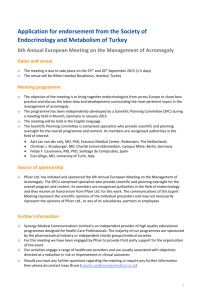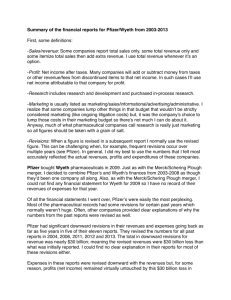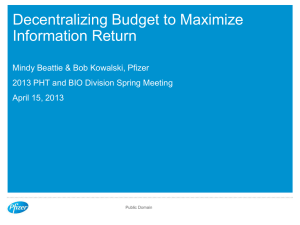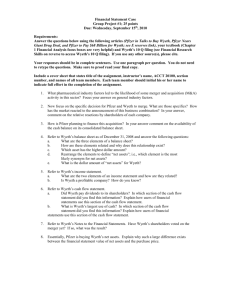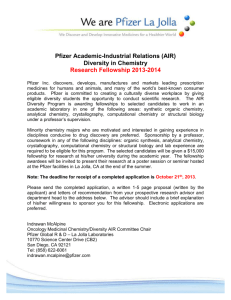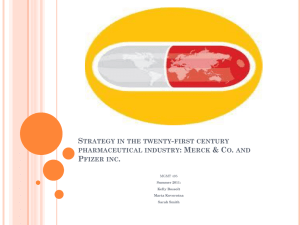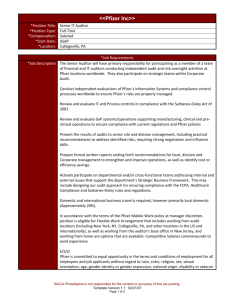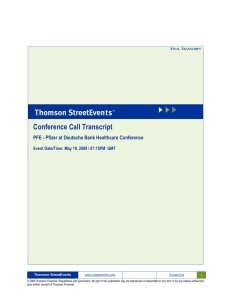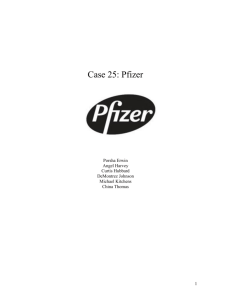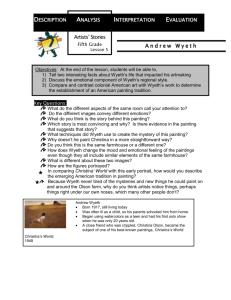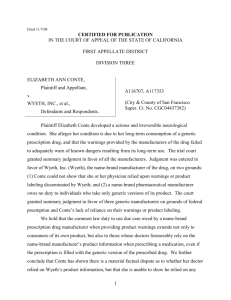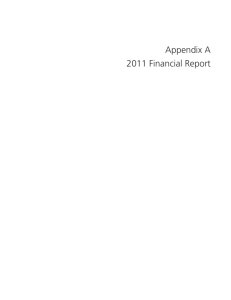Appendix: Solutions to Case Study Questions
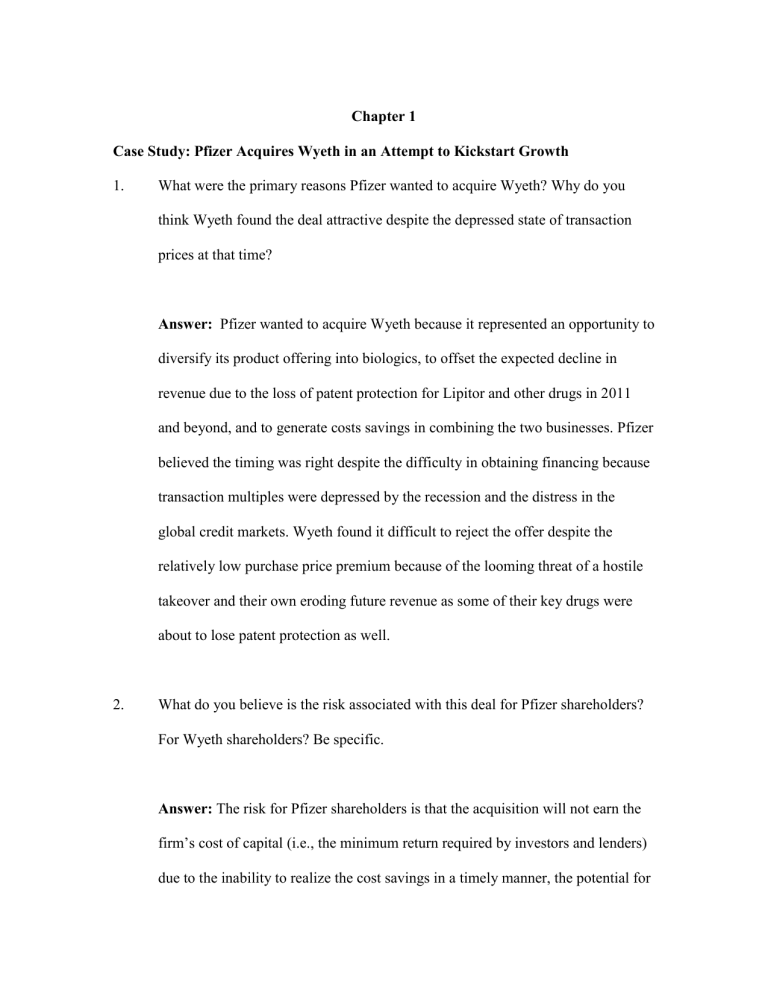
Chapter 1
Case Study: Pfizer Acquires Wyeth in an Attempt to Kickstart Growth
1. What were the primary reasons Pfizer wanted to acquire Wyeth? Why do you think Wyeth found the deal attractive despite the depressed state of transaction prices at that time?
Answer: Pfizer wanted to acquire Wyeth because it represented an opportunity to diversify its product offering into biologics, to offset the expected decline in
2. revenue due to the loss of patent protection for Lipitor and other drugs in 2011 and beyond, and to generate costs savings in combining the two businesses. Pfizer believed the timing was right despite the difficulty in obtaining financing because transaction multiples were depressed by the recession and the distress in the global credit markets. Wyeth found it difficult to reject the offer despite the relatively low purchase price premium because of the looming threat of a hostile takeover and their own eroding future revenue as some of their key drugs were about to lose patent protection as well.
What do you believe is the risk associated with this deal for Pfizer shareholders?
For Wyeth shareholders? Be specific.
Answer: The risk for Pfizer shareholders is that the acquisition will not earn the firm’s cost of capital (i.e., the minimum return required by investors and lenders) due to the inability to realize the cost savings in a timely manner, the potential for
3. a loss of key personnel, and the failure to create a unified culture predisposed to innovation. Wyeth shareholders who retained Pfizer stock received in exchanging their shares were at risk if the expected appreciation in Pfizer stock did not materialize.
Goldman Sachs was both an advisor and a lender on this deal. What is your opinion of the dual role played by Goldman? Be specific.
4.
Answer: Goldman stood to benefit by receiving fees for their role as an advisor and for arranging financing. Given the turmoil in the capital markets at the time of the transaction, it was unlikely that Goldman would be able to sell the loans to other investors. This was a common tactic in recent years. However, Goldman, realizing that it would probably have to retain the loans in its own portfolio, was willing to provide financing anyway, reflecting the firm’s level of confidence in the potential success of the transaction.
In view of the reaction of both firm’s share prices immediately following the announcement of the deal, what do you think investors are assuming about the deal?
Answer: Both Pfizer and Wyeth’s share prices rose following the announcement of the transaction. While it is normal for the target firm’s share price to rise reflecting the premium offered for its stock, the rise in Pfizer stock was not what
5. one would have predicted due to the use of Pfizer stock as a portion of the purchase price. The increase in the number of acquirer shares outstanding often is expected to result in earnings per share dilution as the projected increase in earnings in years immediately following closing often is less than the increase in total shares outstanding. In this instance, investors seem to accept the statement by Pfizer that the acquisition will only be dilutive for one year following closing.
The reverse breakup fee represents 6.6 percent of purchase price. How would you as a negotiator for Wyeth justify such a large fee?
Answer: Wyeth experienced significant expenses during its negotiation with
Pfizer including legal, accounting, and investment banking fees. Furthermore, they could argue that if the transaction did not take place that they would incur substantial opportunity costs. These costs would be the potential lost opportunity associated with their not having negotiated with other potential bidders. Finally, the size of the fee provides an incentive for Pfizer to demonstrate best efforts in trying to arrange financing in order to close the deal.
.
